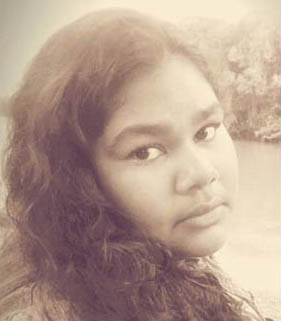A new project has been launched to curb the spread of malaria in Guyana by using satellites to detect mosquitos breeding locations and drone technology to destroy the larvae without causing harm to other species.
The project, titled “DETECT: Integrated Space Technology Vector Control for Enhancing Community Health and Resilience Against Escalating Climatic Disruptions,” is funded by the UK Space Agency to the tune of £483,000.
It is a collaboration of the Open University, the University of Guyana, the University of Stirling, the University of Aberystwyth, the Commonwealth Centre for Digital Health, Blue Bear Systems, 2iC, the BrainStreet Group, the Iwokrama International Centre (IIC), and the North Rupununi District Development Board (NRDDB).

In a statement, Project Manager Carol-Ann Marcus explained that the project will co-design a community-based malaria-vector control service with the Indigenous community of Yupukari, in the North Rupununi, Region Nine, and engage stakeholders from within Guyana and beyond in planning for national and global roll-out.
According to the statement, the collaborating agencies are seeking to develop a novel mosquito breeding site detection and control strategy using a combination of remote sensing, drone surveys, ground truthing and cloud computing.
Their strategy is to enable communities affected by malaria to have satellite, air-borne and ground-based environmental data at their fingertips, so that they can identify where mosquitoes are most likely to breed. Once identified, the project will enable communities to deploy ‘sprayer drones’ to these high-risk areas to release biocontrol agents which will kill the mosquito without affecting other species.

The first phase began on August 1st and will continue for the next eight months.
According to the statement, the BrainStreet group will build an ICT hub in Yupukari Village, North Rupununi, and install hardware and software systems in the hub. In addition, the statement said, primary and secondary school students are expected to benefit from this ICT hub as BrainStreet Group will install a localised virtual learning environment. The University of Guyana is responsible for community capacity building for maintaining and operating the ICT hub.

Meanwhile, the IIC will lead the environmental, vector-control and cultural context analysis. It is also expected to explore cultural issues related to vector-borne disease, ICTs, and space technology. In addition, it will engage stakeholders involved in malaria control in understanding the cultural, social, economic and ecological contexts within which current malaria control practices operate and how communities are affected. Further, it is also expected to offer support in understanding and exploring the specific environmental conditions (vegetation cover and phenology) that determine the mosquito vector population dynamic, persistence in the North Rupununi while working to embed and sustain DETECT within Guyanese vector control strategies.
NRDDB’s primary role is to lead on the community co-design of the DETECT system. It is expected to gain ‘Free Prior and Informed Consent’ of participating communities and lead on building the capacity of an indigenous drone survey team to experiment with drone surveys and drone sprayers for eventual mosquito larvae control.
The statement added that the NRDDB is required to develop a baseline needs assessment and understand cultural challenges and opportunities in systems deployment along with helping to install and manage an ICT hub in Yupukari. It is also supposed to help build capacity for its operation so that the hub can provide timely vector control decisions-support; investigate the potential for the establishment of community based environmental monitoring and management enterprises and help to evaluate the impacts of the project and disseminate its findings.
The project is being led by four Guyanese women, including Marcus, Dr Deirdre Jafferally, Indranee Roopsind from Cobra Collective, who serve as Overall Project Manager, the Co-Principal Investigator and Manager of Community Engagement, respectively. Dr Raquel Thomas, from Iwokrama, will serve as co-lead on the human centered design work package.
“There is virtually no aspect of our daily lives that has been left untouched by the Covid-19 virus and the impact of it will likely be felt for several years to come. It’s worth remembering that all of the other diseases which existed BC (Before Covid) are still just as problematic during this pandemic, and in some cases are being exacerbated by the disruption caused by Covid-19,” the statement noted, while pointing out that modelling analysis released by the World Health Organization (WHO) showed that severe disruptions to insecticide-treated net campaigns and access to antimalarial medicines could lead to a doubling in the number of malaria deaths in sub-Saharan Africa this year to 760,000, compared to 2018.






